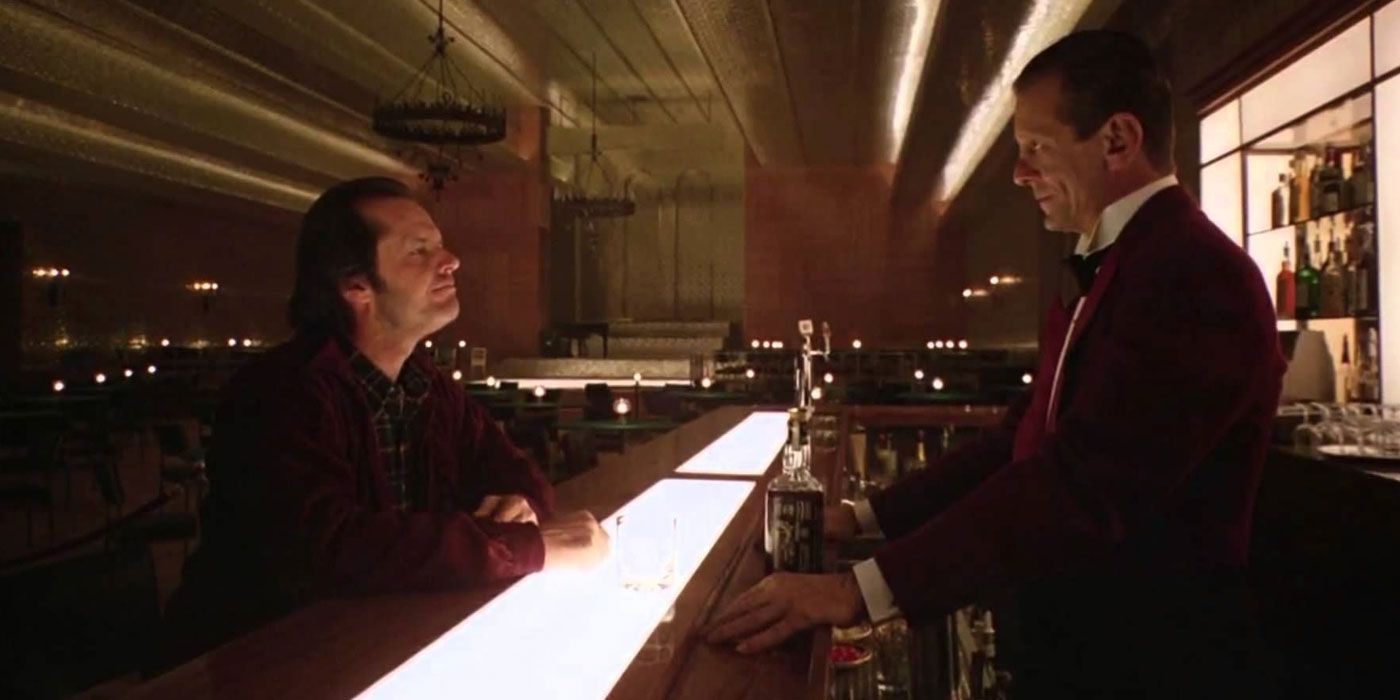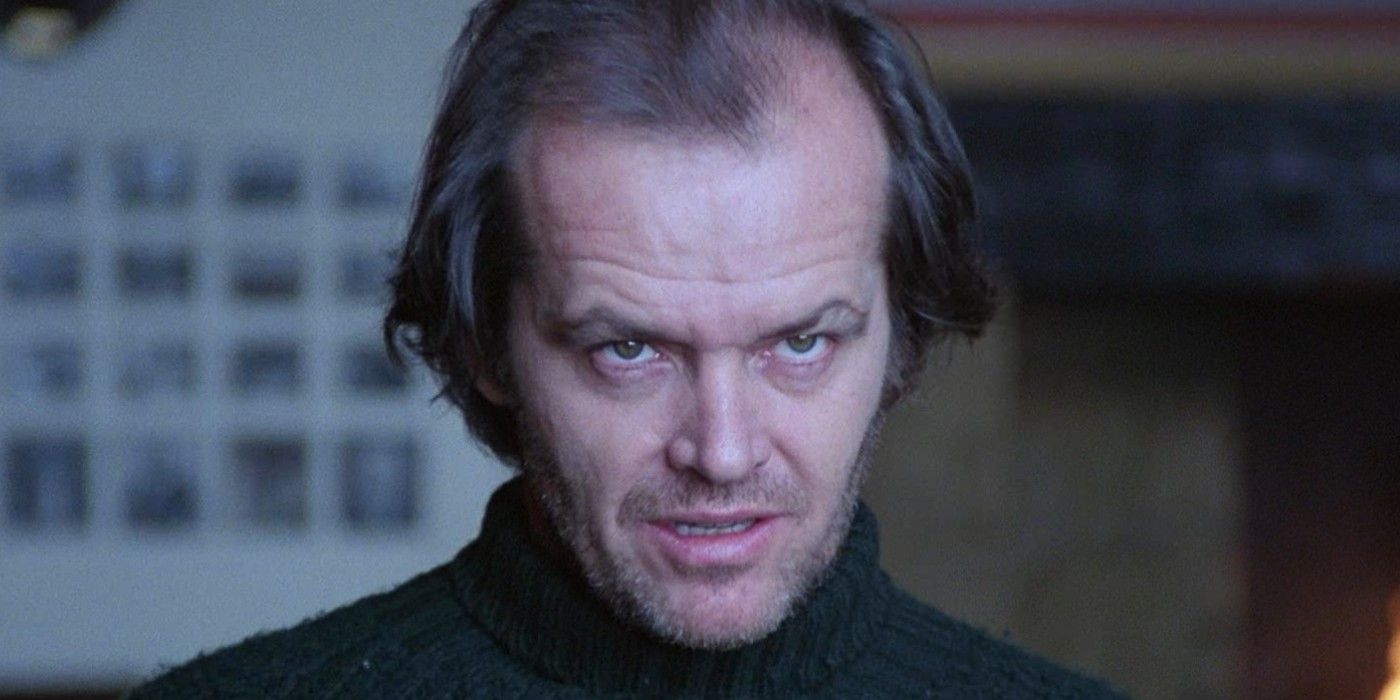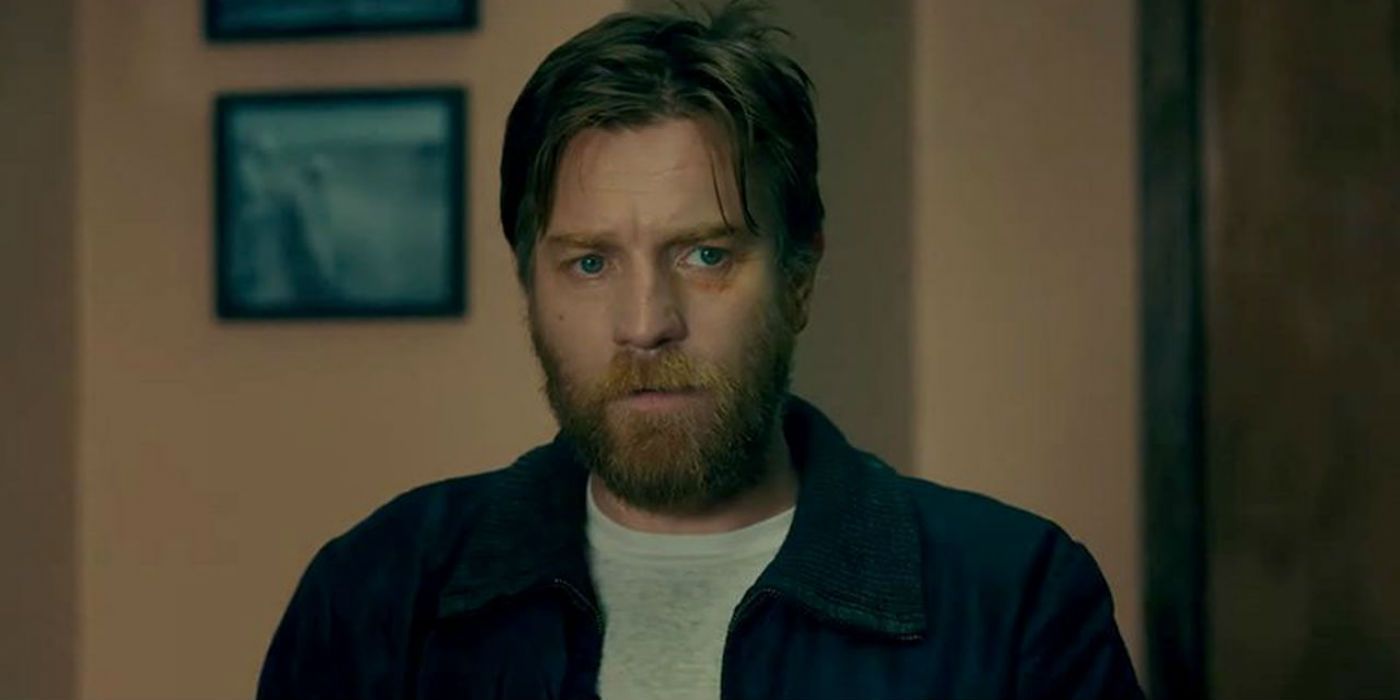Stephen King has always been vocal about his dislike of Stanley Kubrick’s iconic adaptation of his horror novel The Shining; and Mike Flanagan decided to address King’s biggest complaint directly in his adaptation of Doctor Sleep. Flanagan is no stranger to Stephen King or his work, having directed the Netflix adaptation of King’s novel Gerald’s Game, and is now turning his sights towards an adaptation of King’s book Revival. Flanagan’s appetite for horror has at times shocked even King himself, with a specific instance occurring during the filming of one of Doctor Sleep’s most chilling scenes.
Mike Flanagan had a much more difficult time adapting Doctor Sleep than most other King adaptations, mostly because it’s also a direct sequel to Stanley Kubrick’s legendary 1980 horror film, The Shining. Itself an adaptation of Stephen King’s 1977 novel, Kubrick’s film has withstood the test of time and garnered a dedicated cult following as a result of its ominous tone and ambiguous thematic intent, despite the massive liberties it takes with the book’s narrative. A big hurdle for Flanagan in vying for the rights to adapt Doctor Sleep was finding a proper way to marry both the story of the book—which was a sequel to The Shining—and Kubrick’s movie.
Not only was weaving the stories together difficult, but convincing King to allow Flanagan to make a sequel to the 80’s adaptation was a battle in and of itself, due to King’s widely publicized hatred of Kubrick’s movie. Stanley Kubrick changed several crucial plot elements from King’s book, particularly regarding the character of Jack Torrance and the reasons behind his descent into madness. Luckily, Flanagan’s adaptation of Doctor Sleep managed to reconcile the legacies of both works of art, casting Kubrick’s version of Jack Torrance in a different light while also humanizing the concept of addiction.
King’s Shining Was About Jack’s Alcoholism

While the novel The Shining is, of course, about a haunted hotel, the ghosts are a vehicle through which King plays on the vices of his main character. Jack Torrance is a writer and former teacher suffering from intense anger issues as well as alcoholism, a volatile mix that led to him breaking Danny’s arm and assaulting a student prior to the events of the book. Jack takes his family to the Overlook in a genuine attempt to reconcile with them and become a better man, but when the ghosts possessing the hotel realize that Danny is too powerful for them to take control of, they turn their sights on his father. Being much more weak-willed than his son, the hotel plies him with alcohol and false camaraderie. A frequent theme in King’s writing is childhood innocence being a strength instead of a weakness.
King has admitted that Jack Torrance is modeled after himself in some ways, including certain traits such as the occasional anger he felt towards his young children as a parent. Arguably the biggest influence on Jack’s character was King’s own struggle with alcoholism and drug addiction, a battle that he eventually overcame after an intervention in the 80s. As someone who has dealt with those issues himself, it was important for King to inject a bit of sympathy into the character of Jack, creating someone who the audience could empathize with while seeing him and all of his flaws.
This is one of the biggest successes of the novel and gives the book one of its most poignant moments: a scene in which Jack manages to wrestle control of his body away from the Overlook’s possession long enough to save his son and redeem himself. This isn’t just important within the narrative of the novel, it’s important within the context of addiction: everyone has the potential for a reversal, for an opportunity to save themselves.
Stanley Kubrick Turned Jack Into A Monster

Stanley Kubrick’s version of The Shining, though widely beloved and praised as one of the greatest horror films of all-time, is radically different from the novel in some places. Certain concepts are changed, such as the book’s giant topiary animals being replaced with a massive hedge maze. The character of Wendy is reduced from a strong, capable wife and mother to a shrill and frightened damsel, a decision reflected in the real-life terror that actress Shelley Duvall received from Kubrick on-set. However, the change that really frustrated King was one closer to home: Kubrick’s vision of Jack was no longer weak-willed yet empathetic. Instead, he became an unhinged monster whose experiences at the hotel simply unlocked what was already inside of him.
When Kubrick cast Jack Nicholson as Jack Torrance, King was already outspoken in his disapproval of the casting. Nicholson already carried an air of insanity with him before he even made it to the hotel, thus ruining the depiction of Jack as a flawed family man. Kubrick unintentionally doubled down on this by making the ghosts in the hotel a lot more ambiguous than in King’s original novel, therefore introducing the possibility that the supernatural forces within the hotel are really just inside Jack’s mind.
Once the carnage starts, it never stops, and Kubrick’s film never gives Jack a moment of redemption. Unlike the book, which kills Jack off in a moment of clarity and self-sacrifice that allows him to think fondly on his family, the movie sees Jack freeze to death in the hedge maze while hunting down his son. The ending of King’s book feels like the tragedy of a man who had an opportunity to change but was too weak to do so, while the ending of Kubrick’s film figuratively implies that Jack’s fate was always destined, and he never had an opportunity to be better.
Doctor Sleep Humanizes Addiction

The implication of Kubrick’s ending is in no way reassuring to those who are or have struggled with substance abuse, and is emblematic of the reasons behind King’s dislike for the movie. The disparity between the themes of both the book and the film was part of what made adapting Doctor Sleep so difficult for Mike Flanagan. Thankfully, he was able to overcome this by cleverly adopting certain elements from the ending of King’s version of The Shining to make a powerful statement on the nuances of addiction.
In both the book and the movie versions of Doctor Sleep, Danny struggles with alcoholism—like his father—but manages to get clean and turn his life around for the better, something his father was never able to do. At a speech he gives in honor of being eight years clean, Danny talks about his father’s addiction, but also the moments of genuine love and compassion that he experienced, something that Kubrick never showed audiences in his vision of Jack Torrance. This retroactively creates nuance in Nicholson’s portrayal of the character, telling the audience that, while the Overlook turned Jack into a monster, he wasn’t always one. Flanagan doubles down on this in the movie’s third act, when Danny revisits the Overlook Hotel and sees his father in the place of Lloyd the bartender. This scene is heartbreaking, because while Danny was able to overcome his vices, Jack unfortunately succumbed to his and became part of the hotel.
At the movie’s climax, after defeating Rose the Hat, Danny feels the Overlook turn its attention to him in an effort to try and corrupt him the same way it did when he was a child. He chases Abra Stone through the halls of the hotel the same way his father did, in a parallel of the struggles that Jack went through. But instead of succumbing to the hotel’s corruption, and by thematic proxy, his addiction, Danny sacrifices himself by exploding the boiler in the hotel. This is the same thing that Jack Torrance does in Stephen King’s original ending of The Shining. Through a clever bit of screenwriting ingenuity, Mike Flanagan used Doctor Sleep as an opportunity to reconcile two incredible pieces of art, while also making a powerful statement on the nuance of addiction and the humanity of those who struggle with it.




